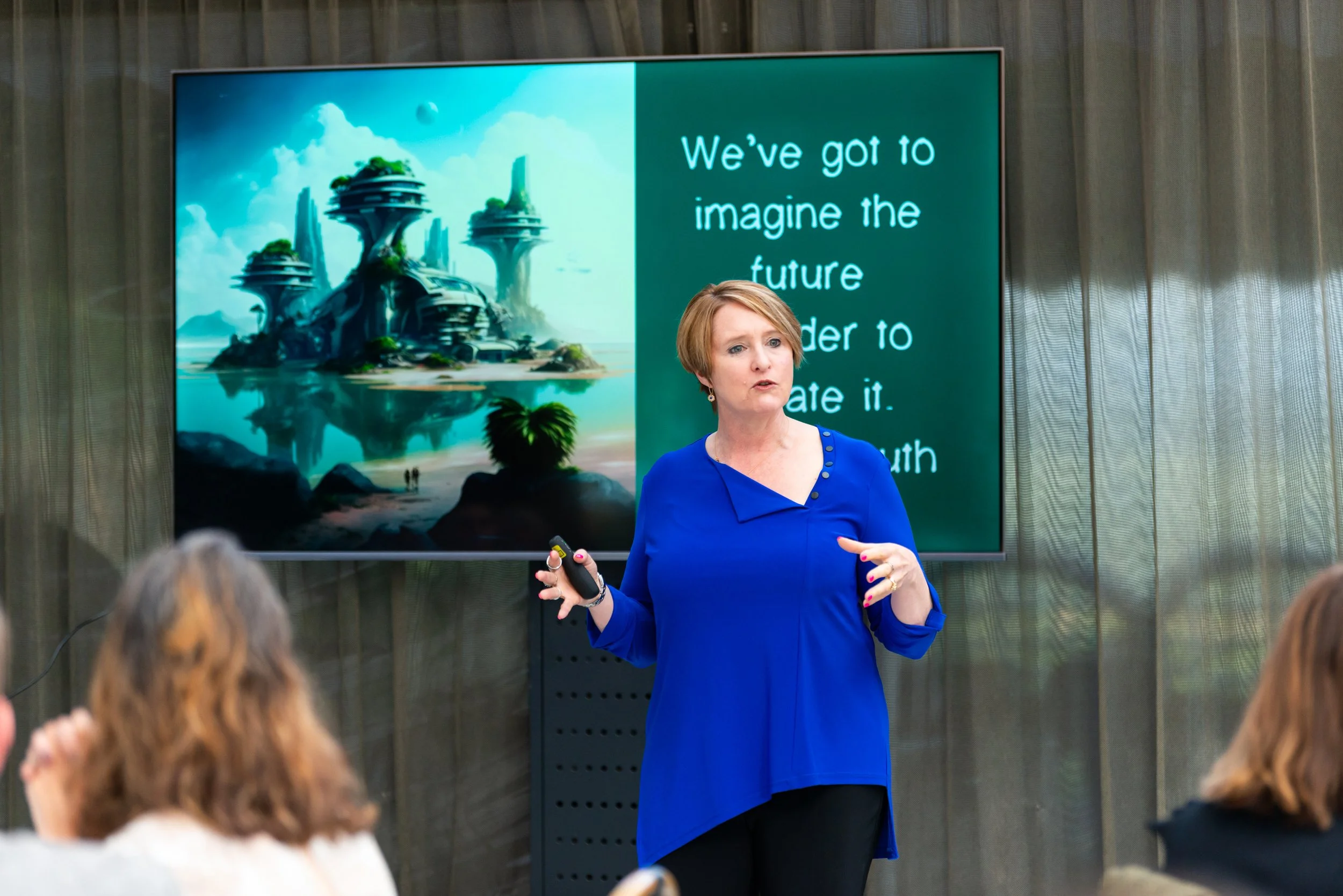Leadership is a lifelong calling, not a lifelong appointment.
As leaders, we need to do our best, be at our best, in service to the greater purpose.
When we lose sight of that, our expiry date starts to flash red. Recognising when it's time to step aside and pass the baton to the next generation is a critical skill for any leader. But how do you know when that time has come? And does age really matter?
Leadership is a privilege of service. It’s energising and rewarding.
And addictive.
There’s a reason why succession planning is a troublesome worry spot for many organisations:
Sometimes the leader just won’t let go.
Why not?
Power. With authority comes the juiciness of status and privilege. Those are hard things to relinquish.
Identity. As a leader, our role frames our day, how we show up, the decisions we make, the responsibilities we bear. Leadership shapes us as much as we shape it. It’s hard to let that go - who are we if not our job?
Community. When we lead, we have stewardship of others and a collective purpose. We work alongside others in bringing a vision to fruition. That sense of camaraderie is fundamental to our well-being. Walking away from that can feel lonely and alienating.
It’s not just the leader. Others can be complicit too.
Research shows:
Only 54% percent of public companies are actively developing CEO successors.
40 percent report not having a single internal candidate to replace the CEO should he or she exit the position.
We get comfortable with the person in charge, especially if they have been competent.
Also, there is a tradition not to discuss the ‘death’ of the ‘monarch’. It’s a sign of respect to avoid speculative or premature conversations about the monarch's death. The focus remains on the monarch's current reign and their duties.
Talking about transition can be destabilising as employees become anxious about change (uncertainty tends to make many of us anxious).
So denial and avoidance are falsely experienced as ‘stability’, as the organisation careens towards implosion without a plan in place, or with a leader who refuses to step aside.
Signs It Might Be Time to Move On:
Loss of Passion and Drive: 🔥 When you find yourself going through the motions, lacking enthusiasm for your work, or dreading the challenges ahead, it might be a sign that your passion for leadership has waned.
Resistance to Change: 🙅 If you're clinging to old ways of doing things, resisting new ideas, or struggling to adapt to a changing business landscape, it might be time to make way for a leader who embraces innovation.
Burnout and Fatigue: 😴 Leadership can be demanding. If you're experiencing chronic stress, burnout, or a decline in your physical or mental well-being, it's important to prioritise your health and consider stepping back.
Lack of Growth and Development: 🌱 Leaders need to continuously learn and grow. If you feel stagnant, unchallenged, or uninterested in further development, it might be a sign that you've reached your limit in your current role.
Negative Impact on Team Morale: 🙁 If your leadership style is demotivating your team, causing conflicts, or hindering their growth, it's time to reflect on your impact and consider making way for a new leader.
Succession Plan in Place: ✅ If you've successfully mentored and developed potential successors, and they're ready to take the reins, it might be the perfect time to gracefully exit and allow them to shine.
Age: A Factor, But Not the Deciding One
While age can be a factor, it's not the sole determinant of a leader's effectiveness. Some leaders thrive well into their later years, while others may feel ready to move on earlier. It's crucial to assess your individual circumstances, energy levels, and passion for the role.
Embracing the Transition
What if we thought about transition differently? What if instead of ‘stepping down’ or ‘stepping aside’ we actually ‘stepped up’?
As seasoned leaders we have an opportunity to amplify the capabilities of others around us, thereby increasing our ripple of influence.
We can do this by STEPPING UP: through mentoring and our next vehicle of contribution.
Case study:
David was the Chair/Managing Director of Konica Minolta from 2013-2020. I interviewed him a few years ago on his ESG achievements in his role then. Since ‘retiring’ from KM he has stepped up enormously. He has become:
Director for Sustainlaytics, an ESG (environmental, social & governance) research firm and ratings agency
Chair of United Nations Global Compact
Chair of Advisory Committee of UNSW Australian Human Rights Institute
Roundtable Committee Member for Westpac Safer Children, Safer Communities Programme.
Adjunct Professor at UTS Business School around building engaged cultures, ethical values in business, corporate social responsibility and ESG - environment, social & governance.
Executive Director of ESG Advisory
AND wrote a book: Kind Business - Bridging the gap between commercial success and compassionate leadership, to reach even more people.
David is modelling what life beyond CEO can look like: continued contribution to a purpose that extends beyond a specific role.
He is truly an extraordinary human being, and he would encourage all of us to be more kind as a starting point. I look forward to having David on my new podcast, The Future of Leadership, later this year.
What could you do next, in service to a better world?
Live with grace, lead in service.
P.S. Subscribers get exclusive bonus resources, like the Succession Plan Implementation Sheet that accompanies this article.
Join the Fit for the Future e-journal for these practical resources, including 29 Lead Culture and Lead Change Book Recommendations with 25 author interviews!
Zoë Routh is a leadership futurist, podcaster, and multiple award-winning author. She works with leaders and teams to explore what's coming and what it means for leadership of the future.
Zoë is an outdoor adventurist and enjoys telemark skiing, has run 6 marathons, is a one-time belly-dancer, has survived cancer, and loves hiking in the high country. She is married to a gorgeous Aussie and is a self-confessed dark chocolate addict.


